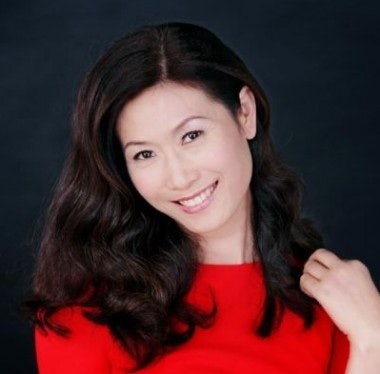Wang: Plenty Of Room For Growth In Chinese Contemporary Art Market#

Wang Wei (王薇)
While Wang Wei (王微) -- wife of art investor and billionaire financier Liu Yiqian -- isn't China's only "super-collector," she is, in our opinion, one of the more interesting. With Wang and Liu's much-anticipated Dragon Art Museum (龙美术馆) recently hitting a construction milestone and set to open to the public in November 2012, this week she sat down with Sohu to discuss her collection, her museum, and her thoughts on the current trends shaping the Chinese contemporary art market. From the interview, which asks the question, "Who says women can't be art collectors?" (translation by Jing Daily team):
Sohu Finance (SF): We heard you were recently in Shanghai to attend the opening ceremony of Yu Hong's new exhibition, is this true?#
Wang Wei (WW)#
: Yes. I did attend Yu Hong's (喻红) opening at the Shanghai Art Museum. I admire her a lot. A total of six or seven of her works are on display in the exhibition. I think her works are excellent. She dedicated herself to raising a family for a while there, and now she's started to work again. Female artists like Yu Hong are great because they do a great job of balancing their career and family. It must be hard for her, so I have been very supportive of her.
SF: Your collection is considered "systematic." How do you feel about this?#
WW:#
Some industry insiders have said that my collection is systematic, though I do not have a background in art history. In fact, even I don't know why my collection has become so systematic. I've collected oil paintings for only about ten years now, although my husband has always been a fan of traditional Chinese paintings. At first, I bought oil paintings just as a way to decorate my home. At that time, compared to the hotter traditional Chinese painting market, there were only about two dozen artists producing good contemporary art to choose from, and their prices were pretty cheap.
Early on, I was interested in works with a revolutionary theme, "Red Classics," not just because I thought they were interesting from a historical point of view, but because I thought these works should have been collected by the National Museum of China. I told my husband that a systematic collection could help us eventually build our own museum if we had enough financial footing.
Now, I've collected more than 200 works, including more than 100 oil paintings and quite a few sculptures and prints. We have already invested more than 200 million yuan (US$31.3 million) into building our private museum. For us, the museum doesn't have to be a huge space, because we can open a second one if we need to.
SF: Have you ever bought something you felt was sub-par?#
WW:#
Not yet. Many people say that I have good taste in art, but I'd just owe this to my accumulation of knowledge over the years. In the past, I mostly just liked buying revolutionary-themed oil paintings and sculptures, and didn't pay that much attention to contemporary art, but in 2009 I realized how ignorant I'd been about contemporary art and soon spent two or three hundred million yuan on building up my collection. At the time, people thought I was buying too high, but as it turns out, I bought the artwork for very cheap. Now, the market prices for these works have roared upwards by 50-70 percent. Some people would say, "Wang Wei has made out like a bandit," but personally, I don't collect with that in mind. I collect to enrich my collection of contemporary art, and for the collection of my museum.
Up until now, no matter how the market performs, I never deviate from this. I want to share the most classic works from my collection with the public through my museum.

Wang's Dragon Art Museum will open in November 2012
SF: We all know that you and your husband are doing very well in the stock market. In your opinion, what are the similarities and differences between buying stocks and investing in art?#
WW:#
A stock is a financial product, and artwork is a general product. However, the differences between these two products are even more significant. For example, my husband has a team dedicated to doing research on buying stocks. Similarly, we can think of artists almost like stocks. Before we buy, we also need to study the artists to see who is the best and which works are best.
In terms of the optimal selection, stocks and artworks are almost the same. But to go further, we need to keep tracking the artists and their works. This does not only rely on empirical data, but also depends on our deepening aesthetic understanding and familiarity with the market. In addition to the research work, I always keep myself updated with the latest market information. I have to participate in almost every important auction.
In my opinion, there is a lot of room for the Chinese contemporary art market to grow, since it's only about halfway through its development. In the future, I think only a few people will be able to afford oil paintings. In foreign countries, the best oil paintings are bought as luxury goods by top execs. In China, it is still too early to say the market has come to a head just because normal entrepreneurs can afford top-notch works of art. I think we cannot say the market has reached a peak unless these works can only be enjoyed by the upper class. .
SF: What's your idea for your museum, from a financial standpoint? How do you see your museum differing from others?#
WW:#
In addition to displaying artwork, I think my museum will also engage in education, such as children's education, mothers' and wives' education, education for seniors. I want to do some training courses, inviting teachers and making the courses part of a series. In addition, from my own personal experience, I think housewives also need artistic training, for everything from the interior decoration of their homes to floral arts and their own personal fashion sense. They need systematic training and authoritative guidance. For example, if a lady needs to buy a painting priced at 500,000 yuan, she needs to choose a piece of art that's really worth the investment.
In this regard, museums should have the ability and obligation to provide her with this guidance. This is not only about supporting the market, it's also about supporting Chinese contemporary art.